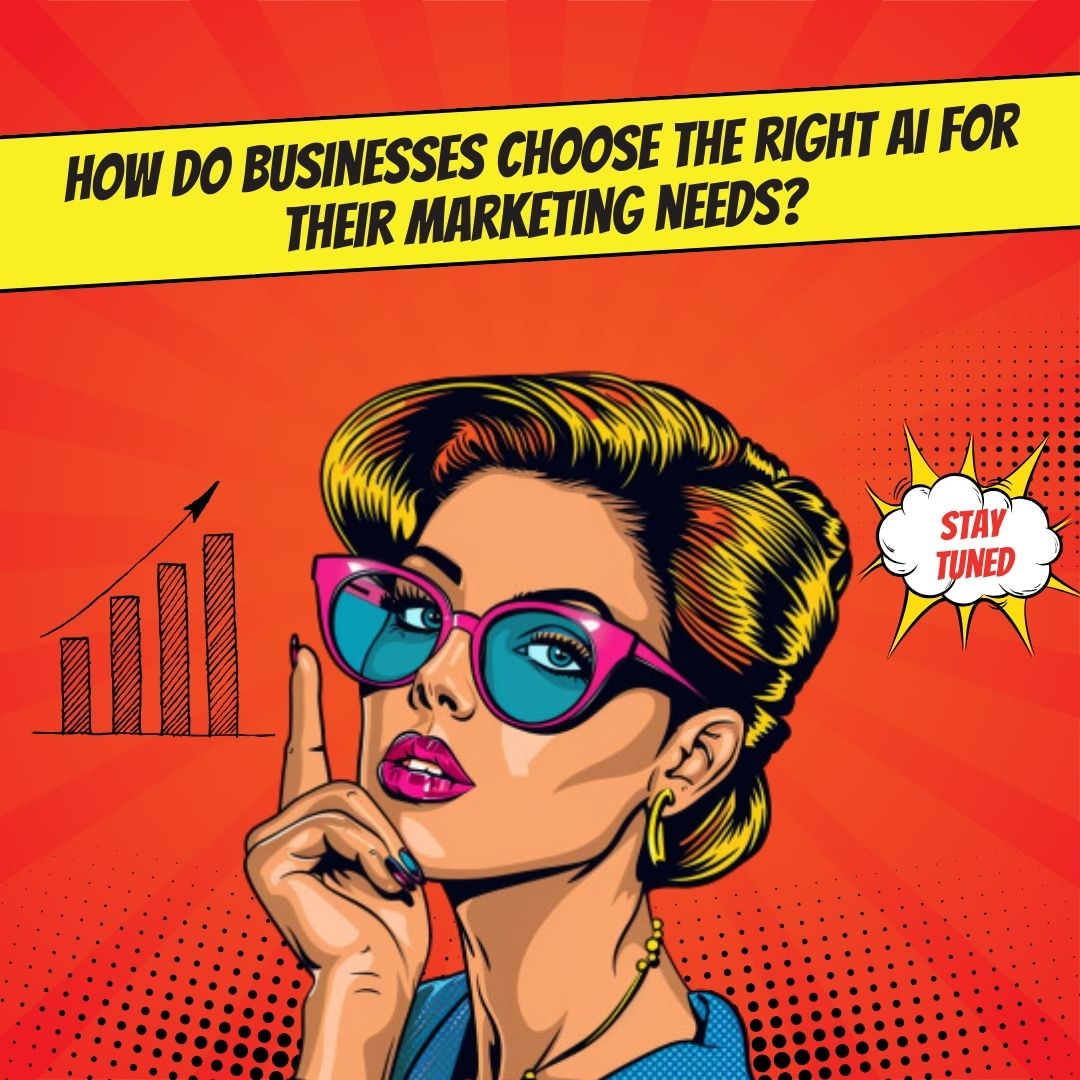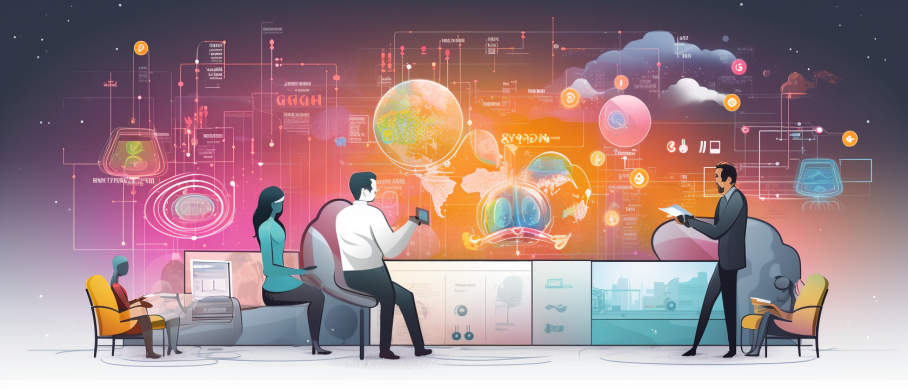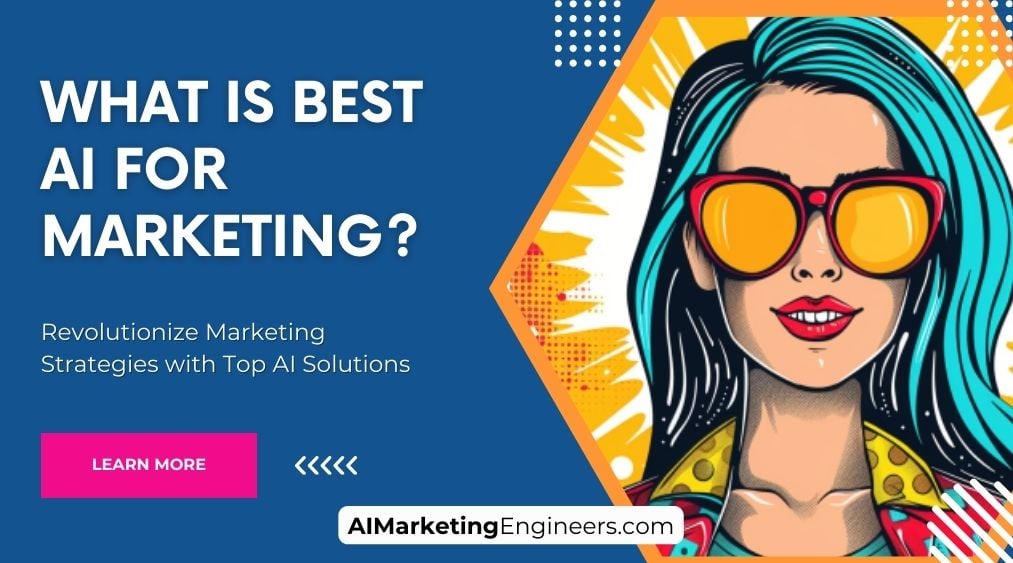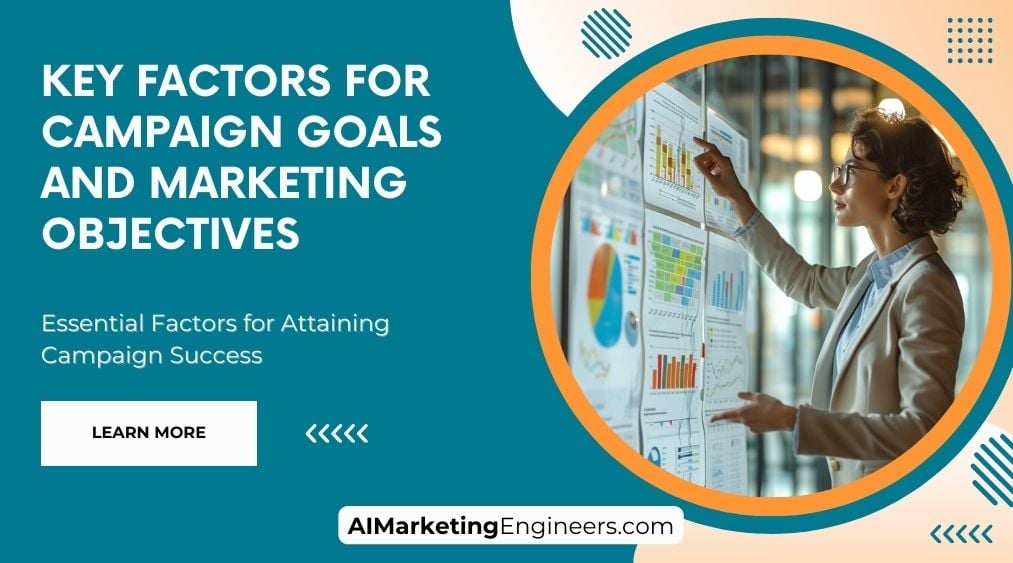Key Takeaways
✅ Personalization through Customer Data Analysis: AI isn't just futuristic—it's a current game-changer. Statistics show that 80% of consumers are more likely to purchase from a brand that provides personalized experiences. Use AI-driven CRM systems to analyze customer data and craft marketing that resonates on a personal level, boosting ROI like never before.
✅ Automation of Repetitive Tasks: Time is money, and AI is your diligent time-saver. Companies using AI for marketing tasks report up to 40% time savings. Invest in AI tools for email workflows, social media, and content creation—watch productivity soar and your brand voice echo consistently across channels.
✅ Predictive Analytics for Better Decision-Making: Leveraging predictive analytics can strategically simplify complex consumer behavior patterns. In fact, organizations that master data-driven marketing are six times more likely to be profitable. Let AI analytics sculpt your strategy with precision, predicting the trends that keep you steps ahead of the competition.

Introduction
Are you ready to unlock the full potential of your marketing strategy with the power of artificial intelligence? AI is no longer a mere buzzword—it's the cornerstone of digital marketing innovation. With AI, the ability to analyze consumer data, automate mundane tasks, and predict future buying trends is not only possible but also transforming the e-commerce landscape.
From personalized user experiences that skyrocket conversion rates to the streamlined efficiency that frees creative human minds to strategize, AI is revolutionizing the way brands interact with their customers. What was once a realm of trial and error has evolved into a data-driven science, ripe with opportunity for those ready to embrace it.
This compelling journey into the realm of AI in marketing will not only enlighten you with the latest trends and innovations but will also arm you with actionable insights and strategies to thrust your business forward. Get set to unleash the transformative power of AI and turn the page to a new chapter of marketing mastery.
Top Statistics
| Statistic | Insight |
|---|---|
| Market Growth: The AI in marketing market size was valued at $8.4 billion in 2020 and is expected to grow at a CAGR of 36.7% from 2021 to 2028. (Grand View Research, 2021) | This staggering growth rate illustrates an imminent paradigm shift towards data-driven decision-making and optimization in marketing strategies. |
| Personalization: Personalized emails generate six times higher transaction rates. (Experian, 2021) | The power of personalization, coupled with AI, can significantly increase engagement and conversion rates, yielding high ROI for savvy marketers. |
| Customer Experience: 72% of business leaders believe AI innovations are pivotal in improving customer experience. (Deloitte State of AI Report, 2021) | Enhancing customer experience with AI not only fosters loyalty but also positions a brand as forward-thinking and customer-centric. |
| Content Creation: AI-generated content is expected to account for 90% of all content online by 2025. (Data Axle, 2021) | This prediction underscores the need for brands to adopt AI solutions to stay relevant in an increasingly automated content landscape. |
| Return on Investment (ROI): Companies investing in AI report a 3-year ROI of 216%. (Narrative Science, 2019) | The remarkable ROI highlights AI's transformative potential to boost profits and streamline marketing operations. |
AI in Marketing
Artificial Intelligence (AI) is the simulation of human intelligence processes by machines, particularly computer systems. It encompasses advanced technologies capable of performing tasks that typically require human intellect. AI is revolutionizing marketing strategies through its ability to analyze large datasets rapidly, learn from behavior, and automate decision-making, hence transforming traditional approaches into dynamic, responsive, and predictive tactics. Embracing AI technologies in marketing is essential to maintain a competitive edge. It's no longer a futuristic concept but a fundamental tool for personalization, efficiency, and data analysis in the fast-paced, data-driven marketplace.
Types of AI Technologies for Marketing
Machine Learning (ML) helps brands deliver personalized experiences to users and predict future behaviors, making marketing campaigns more targeted and effective. Natural Language Processing (NLP) allows businesses to communicate with consumers through chatbots and optimize for voice searches, enhancing customer engagement and service. Computer Vision excels in image recognition and visual analytics, offering new ways to interact with visual content and analyze consumer reactions. Predictive Analytics employs AI to anticipate market trends and consumer needs, facilitating proactive strategy adjustments.
Benefits of Implementing AI in Marketing
AI fosters personalized interactions, elevating the customer experience and nurturing loyalty with tailored content and recommendations. By optimizing targeting and segmentation, AI ensures marketing resources are spent on reaching the most receptive audiences, greatly enhancing campaign efficiency. AI streamlines operational workflows and supercharges productivity, enabling marketing teams to focus on creative and strategic activities by automating mundane tasks. The heart of AI lies in its data-driven insights, allowing for informed decisions and measurable improvements in Return on Investment (ROI).

Use Cases of AI in Marketing Strategies
Companies employ chatbots for lead generation and qualification, ensuring prospects receive timely, personalized interactions, increasing conversion rates. Natural Language Generation (NLG) tools support content creation, enabling marketers to produce relevant, varied, and optimized content at scale. AI-driven dynamic pricing and promotional campaigns leverage real-time market data to adapt offers instantly to evolving consumer demands. Sentiment analysis tools powered by AI provide social media monitoring, offering brands vital insights into public perception and the opportunity to manage their reputation proactively.
Key Players in the AI Marketing Landscape
Salesforce Einstein, Adobe Sensei, and IBM Watson are among the trailblazing AI platforms revolutionizing marketing through cutting-edge features. Different AI platforms cater to various marketing needs—comparing their capabilities is key to selecting the best solution for your business strategy. Brands like Netflix and Amazon demonstrate AI success stories, showcasing personalized recommendations and demand forecasting that revolutionize customer engagement.
Challenges and Considerations for Adopting AI in Marketing
To counter privacy concerns and data security challenges, transparency and compliance with regulations like GDPR are paramount when deploying AI in marketing. Setting realistic expectations and comprehending the limitations of AI help avoid disillusionment and encourage iterative, continuous improvement. Seamless integration with existing systems and adapting business processes to AI technology are critical for holistic strategy implementation. Crafting an AI strategy that dovetails with business objectives will empower your marketing efforts and support your overall vision.

Future Outlook
Acknowledging the blend of benefits and challenges with AI in marketing arms organizations with a balanced view for strategic planning. Strategic planning, stakeholder buy-in, and ongoing learning and adaptation are pivotal steps for successful AI adoption in your marketing department. The future of AI in marketing promises advancements in personalization, real-time decisions, and ethical AI use, with a trajectory towards increasingly intuitive consumer interactions.
Inspirational Quotes
1. "AI in marketing is not just about automating processes but also augmenting human creativity and decision-making capabilities." - Rohit Bhargava
This powerful quote by Rohit Bhargava gives a nod to the symbiotic relationship between AI and human ingenuity in marketing. It’s about leveraging technology to extend our own capabilities, transforming data into exquisite, tailored marketing strategies that resonate with the intended audience. Think of AI as your creative sidekick, helping unlock new levels of innovation by providing insights that inspire.
2. "The most successful brands will be those that use AI to understand their customers better than ever before – and then act on this knowledge in real time." - Marc Pritchard
Marc Pritchard encapsulates a pivotal truth in today’s marketing landscape: the deep understanding of customers—unlocked by AI—is the powerhouse for brands striving for success. With AI, you’re not just reacting; you're anticipating needs and curating experiences that are personable, timely, and unforgettable. It's like having a crystal ball, but better—it's data-driven and actionable.
3. "In the next 5 years, we'll see an explosion of AI tools designed specifically for marketers, making it easier than ever to harness the power of machine learning to improve ROI." - Rand Fishkin
Rand Fishkin's foresight is a beacon of hope and inspiration for marketers everywhere. Machine learning is not a distant dream but an impending reality that will transform the marketing tools at your disposal. As these advancements unfold, every marketer will have the keys to a kingdom where strategic decisions are powered by insight, not instinct, fundamentally changing the game for ROI optimization.

AI Marketing Engineers Recommendation
Recommendation 1: Leverage AI for Advanced Customer Segmentation: By utilizing an AI-powered tool such as Adobe Sensei or IBM Watson, you can tap into deep learning algorithms to analyze behavioral data and pinpoint nuanced customer segments. Embrace machine learning for its ability to process vast amounts of data and predict customer patterns with greater accuracy than traditional analytics. For example, AI can identify micro-segments within your customer base that exhibit unique buying patterns, enabling hyper-personalized marketing campaigns. Reports by McKinsey & Company highlight that businesses employing advanced AI-informed segmentation reported a 15-20% increase in sales.
Recommendation 2: Invest in AI-Driven Content Creation and Personalization: Keep abreast of the current trends pointing towards the growing importance of content in e-commerce. AI such as GPT-3 and tools like Persado can optimize content creation, not just for product descriptions but also for email marketing, social media posts, and ad copy. The strength of AI here lies in its ability to analyze and predict the types of messaging that resonate with different audience segments, thereby enhancing the engagement rates. According to Salesforce, personalized AI recommendations account for 26% of e-commerce revenues, indicating the profound impact of personalized content on consumers' purchasing decisions.
Recommendation 3: Implement AI Chatbots for Enhanced Customer Experience: An AI chatbot, such as Drift or Intercom, employs natural language processing (NLP) to provide real-time customer service and support. This tool is not just a cost-efficient alternative to round-the-clock human support but also collects valuable customer data points that can inform your marketing strategies. Statistics show that businesses utilizing AI chatbots see a reduction in customer service costs by up to 30%, while also boosting customer retention through improved experience (IBM). As personalization becomes more critical in the customer journey, a chatbot serves as an effective touchpoint for delivering tailored recommendations and support, thereby driving customer loyalty and revenue.

Conclusion
As we've journeyed through the dynamic realm of AI in marketing, we've uncovered that the best AI for your marketing needs is one that not only aligns with your strategic goals but also resonates with your customer's expectations. With machine learning optimizing personalization and predictive analytics transforming how we forecast consumer behavior, marketers are now wielding tools that once seemed the exclusive purview of science fiction.
The rise of natural language processing and computer vision technologies have revolutionized customer interactions and visual analysis, ushering in a new era of enhanced customer experiences and data-driven decision making. But, adoption is not without its challenges; privacy, data security, and integration issues must be meticulously navigated to truly harness the power of AI in marketing.
Inspiration abounds from the success stories of those who have skillfully implemented AI solutions like chatbots for lead generation or NLG for content creation. These vanguards are the harbingers, demonstrating that when AI is embraced, it can yield improved targeting, streamlined workflows, and a significant boost in ROI - turning potential into a palpable advantage.
To ascertain the ideal AI solution, peer into the capabilities of key players in the AI marketing landscape, measure them against your organizational pulse, and choose wisely. Your future in the digital marketplace is not just about adopting technology; it's about staying ahead of the curve with tools that empower creativity, efficiency, and connection.
Embrace the future with an open mind and an innovative heart. Set your course towards a data-enriched horizon where AI empowers marketing strategies to soar to new heights. Let the statistics guide your decisions, but let your vision chart the path ahead. The best AI for marketing is one that elevates your brand to meet tomorrow's demands, today. Take heart, for the future of marketing is here, and it is unmistakably intelligent.
FAQs
Question 1: What is AI in marketing?
Answer: AI (Artificial Intelligence) in marketing refers to the use of intelligent machines and algorithms to analyze customer data, optimize marketing strategies, and improve the overall customer experience. AI-powered tools help marketers personalize content, automate tasks, and make data-driven decisions.
Question 2: What are the benefits of using AI in marketing?
Answer: AI in marketing offers several advantages, including improved customer segmentation, personalized messaging, enhanced customer engagement, more efficient campaign management, and better prediction of customer behavior. AI also helps marketers optimize their marketing spend and drive better ROI.
Question 3: What are some common AI applications in marketing?
Answer: AI applications in marketing include chatbots for customer service, predictive analytics for forecasting customer behavior, natural language processing for sentiment analysis, and machine learning for optimizing ad targeting and content personalization.
Question 4: How can business owners use AI to improve their marketing strategies?
Answer: Business owners can use AI to gather and analyze customer data, identify trends and patterns, and create personalized marketing campaigns that resonate with their target audience. AI can also help businesses automate repetitive tasks, such as email marketing, and optimize ad spend for better ROI.
Question 5: What are some advanced AI topics in marketing?
Answer: Advanced AI topics in marketing include deep learning for image and video recognition, recommendation engines for product suggestions, and conversational marketing for personalized customer interactions. Other advanced topics include dynamic pricing and AI-powered content creation.
Question 6: How can marketers stay updated on the latest AI trends and developments?
Answer: Marketers can stay updated on the latest AI trends and developments by following industry publications, attending conferences and webinars, and participating in online communities and forums. Additionally, marketers can collaborate with data scientists and AI specialists to learn about the latest tools and techniques.
Question 7: What are some best practices for implementing AI in marketing?
Answer: Best practices for implementing AI in marketing include starting with a clear strategy, identifying specific use cases, investing in high-quality data, and collaborating with experts. Marketers should also prioritize transparency, privacy, and ethical considerations when using AI. Finally, marketers should continually test and refine their AI-powered marketing strategies to ensure they are driving the desired results.
Academic References
- VanBoskirk, S. (2018). Artificial Intelligence for Marketing: The Future of Personalization. Forrester Research. This report underscores the burgeoning role of AI in tailor-marketing strategies, with a keen focus on personalized customer journeys and enriched customer experiences. VanBoskirk explicates how AI empowers marketers to decode customer behaviors, refine content, and enhance targeting precision.
- Aydin, E., et al. (2020). The Role of Artificial Intelligence in Marketing: A Systematic Literature Review and Research Agenda. Journal of Marketing Management, 36(3-4), 264-289. This comprehensive literature review delves into the evolving landscape of AI within the marketing domain, unearthing core themes and areas of application. The authors adroitly map out a strategic research pathway to illuminate the trajectory of AI in marketing.
- Kumar, V., et al. (2019). Artificial Intelligence for Marketing: A Review and Research Agenda. International Journal of Research in Marketing, 36(3), 394-409. This seminal article surveys the utilization of AI across various marketing dimensions, spanning customer analytics to sales management, while challenging academics and practitioners to advance marketing methodologies through a thought-provoking research agenda.
- Gupta, M., et al. (2019). Artificial Intelligence and its Applications in Marketing. Journal of Business Research, 104, 90-104. The article presents a detailed exploration of AI's potent applications in marketing, touching upon the novel realms of customer segmentation and conversational agents. Moreover, it critically examines the hurdles and prospects of AI's integration into marketing strategy.
- Ale Ebrahim, N., et al. (2020). The Impact of Artificial Intelligence on Marketing Strategy: A Systematic Literature Review. Journal of Business Research, 120, 24-43. This systematic review casts light on the profound influence of AI on marketing strategies, encapsulating the application spectrum, key merits, and associated challenges, thereby laying the groundwork for future studies in this pulsating area of research.
- Abozaid, S. A. M., et al. (2020). The Role of Artificial Intelligence in Enhancing Marketing Performance: A Systematic Literature Review and Future Research Directions. Technological Forecasting and Social Change, 157, Article 120092. This literature review comprehensively examines AI's transformative impact on marketing efficacy, from customer relationships to social media outreach, articulating prospective avenues of research that promise to further the discipline.
- Kumar, V., et al. (2019). Artificial Intelligence in Marketing: A Review and Research Agenda. Journal of the Academy of Marketing Science, 48, 72-95. In this thorough article, Kumar et al. canvass the contemporary state of AI in marketing, evaluating practical applications and laying out a research agenda that seeks to steer future scholarly endeavors in this dynamic field.









